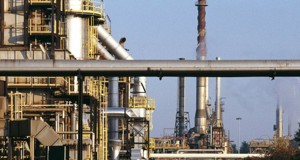Hammer could fall on Europe's vulnerable refineries from 2018
ANTWERP (Reuters) -- Strong residual demand for oil products and the emergence of only a handful of new refineries will protect the profits of Europe's long struggling operations this year, but experts expect the hammer to fall on the weakest from 2018.
State-of-the art new refineries in Asia and the Middle East have sharply increased the amount of oil products flowing into global markets and threaten the existence of Europe's ageing and less sophisticated units.
However, meteoric fuel demand, driven by low oil prices, has given many a reprieve over the past two years, protecting thousands of workers in Mediterranean countries such as France, Greece and Italy.
A mixture of maintenance in Asia and only a limited amount of new refineries coming online could give vulnerable refineries another stay of execution, speakers at the Platts Middle Distillates conference in Antwerp said.
"We think the market can absorb it," said Adam Ritchie, founder of AR Oil Consulting and a director at Petro-Logistics, referring to new capacity coming up in 2017.
He noted that underlying economic growth could give diesel demand in particular a kick, and would be sufficient to absorb the refining additions this year -- mostly condensate splitters in Iran, Oman and Qatar.
Gunvor chief economist David Fyfe said "robust" oil consumption this year could yield demand growth of as much as 1.4-1.5 MMbpd, a level that would actually limit so-called "spare" refining capacity that produces above what the world will consume.
But from next year, the picture turns darker for European refineries, which are run by either the oil majors or smaller niche players.
Consultants Baker & O'Brien estimate that there is a further 1.3 MMbpd globally of new refining capacity scheduled to start up in 2018. Energy Aspects put the figure even higher at 1.57 MMbpd.
Either level is likely to squeeze oil product margins and shorten the lifespan of the simplest refineries, particularly those in areas of limited oil demand growth such as the Mediterranean.
"Our view is that this new capacity will outstrip the underlying demand, nudging refinery utilization back towards recent historical lows," said Peter Bartlett, a director for Baker & O'Brien's London office. It would turn up the heat in a "pressure cooker" environment that could force some units to shut their doors forever, he added.
Reporting by Libby George; Editing by Keith Weir







Comments